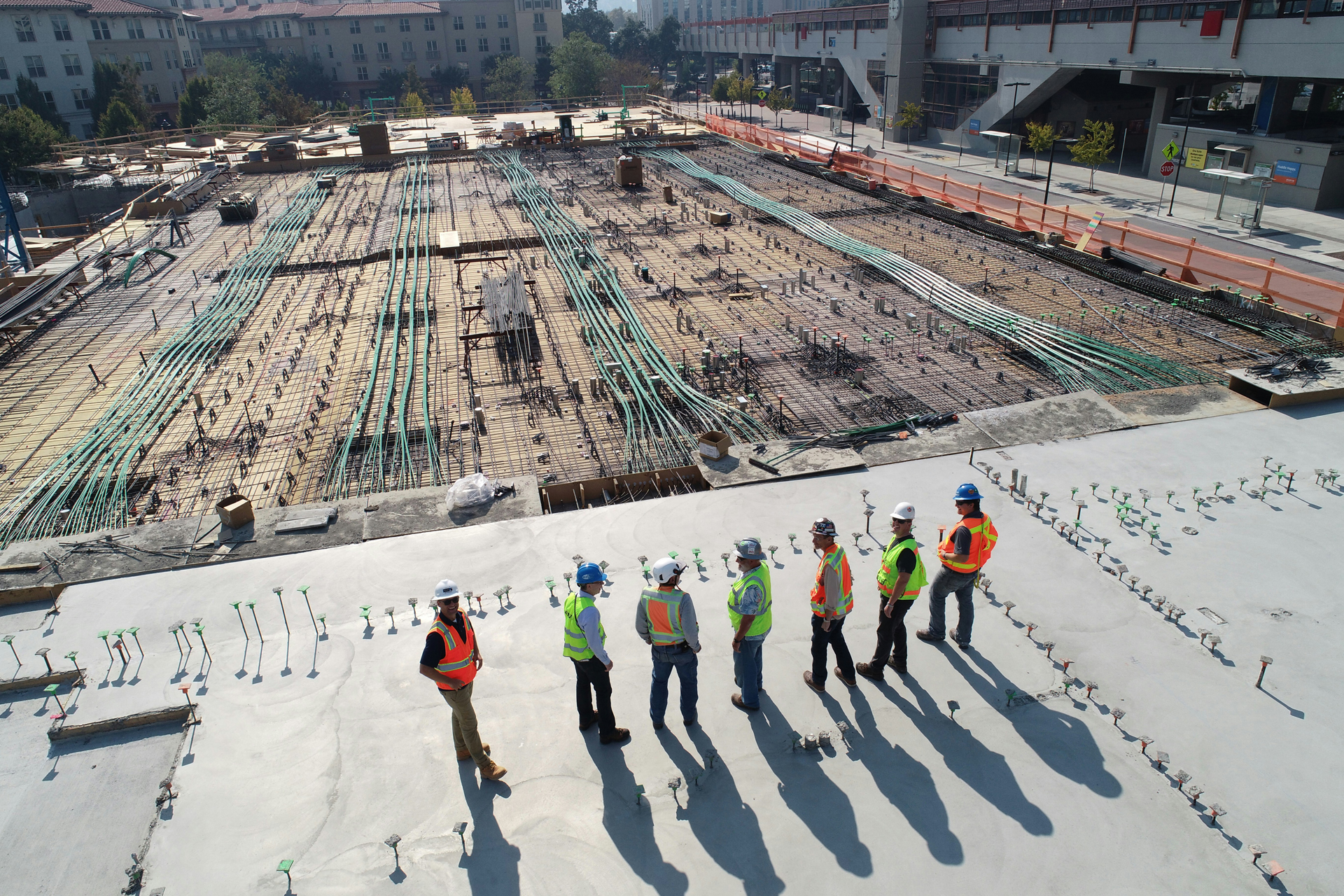
From Risks to Opportunity
Having explored the Strategic Overview and the Case for Growth, we now turn to the question that will define Lancashire’s success: how will the Growth Plan be delivered?
This is where ambition meets reality – and where strong governance, coordinated leadership, and disciplined project management will turn vision into value. Lancashire’s Growth Plan (2025–2035) – the county’s first integrated roadmap for productivity, place, and people — outlines the direction.
The next step is delivery:
Translating strategy into results that can be seen and felt across the county’s communities, industries, and institutions.
The Risks to Delivery
Any long-term programme or plan will face challenges – this is no different. The question isn’t whether risks exist, but how they’re managed to protect the plan’s momentum, confidence and vision.
Lancashire’s Growth Plan must also withstand the uncertainties of a changing world (the past decade alone has brought COVID-19, social-media upheaval, geopolitical shocks, the clean-energy transition and the rise of AI). Ten years is a long time, and we believe that the below external pressures will provide the true test to the governance and resilience of those aiming to deliver the Growth Plan:
- Political and policy shifts
- A ten-year horizon will span multiple general elections and shifting government priorities, reshaping funding and devolution agreements.
- Economic volatility
- Inflation, interest rates and global shocks could raise costs, delay projects or limit private investment.
- Technological change
- Rapid evolution in AI, automation and energy requires plans that stay relevant to avoid obsolescence.
- Skills shortages
- Without a strong talent pipeline, even the most ambitious projects may struggle to deliver.

Programme and Project Risks
At its heart, the Growth Plan is a portfolio of programmes. Like any major delivery effort, its success rests on how well the fundamentals of governance, time, cost, and quality are managed. The scale of ambition brings with it the scale of risk.
We think that the following risks should always be considered when managing programmes and projects alike:
- Governance
- Poor coordination between authorities and delivery partners could lead to duplication, drift, or loss of accountability.
- Time
- Projects spanning multiple years risk slippage due to dependencies, procurement, or funding delays.
- Cost
- Inflationary pressures and competing priorities could lead to overspends or trade-offs between outcomes.
- Quality
- The temptation to deliver quickly could undermine quality, value, and long-term impact.
Success will rely on clear governance, disciplined change control, and a shared understanding of what “good delivery” looks like across all partners.
Lancashire-Specific Risks and Opportunities
As a Lancashire-based business, we recognise the county’s incredible strengths — from its industrial heritage and world-class universities to its growing clean energy and digital sectors. The Lancashire Growth Plan has the potential to unite these assets under a shared vision for inclusive, sustainable prosperity.
However, the challenges associated with delivering such a bold agenda are uniquely Lancashire’s:
balancing local autonomy with collective accountability, ensuring every district benefits equally, and maintaining momentum through change.
The question is how we turn these challenges into catalysts for smarter, more joined-up delivery. From a county perspective, we believe the following are the underlying risks to consider:
- Governance and coordination
- Fragmented decisions between authorities could lead to duplication, blurred accountability or slow responses.
- Uneven growth
- Without balanced investment, prosperity may concentrate in certain areas while others stagnate.
- Political alignment
- Differing local agendas could disrupt delivery or weaken collective focus.
- Capacity and capability
- Unequal resources and experience across districts could affect delivery quality.
These challenges highlight why the Growth Plan’s success depends on how effectively the Lancashire Combined County Authority (LCCA) balances local autonomy with shared delivery – maintaining trust, transparency, and consistency across partners.
Locally, the ambition is already visible. Projects such as Eden Project North (approved 2024) and Lancaster University’s Health Innovation Campus (HIC) demonstrate how clean energy, tourism, and research can converge to create lasting value — improving employment quality, enhancing skills, and strengthening the Bay area’s role in Lancashire’s innovation ecosystem. Yet, they also underline the importance of long-term coordination, stable funding, and community engagement — the very ingredients needed for the wider Growth Plan to succeed.
If Lancashire can replicate these models of collaboration county-wide, it has the opportunity to transform its polycentric economy into a coherent growth engine — one recognised for its innovation, clean energy leadership, and inclusive approach to prosperity.
True success will mean every community, from Morecambe to Burnley, shares in the benefits of growth and feels part of Lancashire’s journey toward a stronger, fairer future.
Managing the Risks
Managing these risks requires more than awareness – it requires action.
From our experience supporting and delivering complex programmes across the UK, we believe success comes from disciplined governance, genuine collaboration, and the adaptability to respond as conditions change. In practice, that means keeping governance simple and transparent – robust enough to assure delivery but lean enough to avoid unnecessary bureaucracy.
We’ve seen first-hand how early clarity on roles, open communication between partners, and quick access to reliable data can prevent small issues from becoming major setbacks.
This is the kind of delivery culture Lancashire needs to embed – one built on trust, accountability, and shared purpose.
- Strong Governance
- Clear accountability, with the LCCA monitoring progress, intervening early and escalating when needed.
- Quick wins
- Early successes build confidence, maintain stakeholder trust and demonstrate momentum.
- Inclusive engagement
- Every community and partner must feel represented in decision-making to sustain collective ownership.
- Evidence-led delivery
- Real-time insights from the Lancashire Data Observatory support smarter prioritisation and earlier intervention.
The most effective governance frameworks are those understood, lived and owned by everyone delivering within them. When risks are managed in this way, the benefits extend far beyond project delivery – they reach communities, businesses, and future generations.
With every risk comes opportunity:
If Lancashire’s projects are delivered well, they can strengthen local supply chains, create higher-value jobs, and build greater confidence in the county’s ability to lead its own growth. Effective delivery doesn’t just manage risk – it multiplies value.
Economic Opportunities
If the Growth Plan succeeds, Lancashire has the chance to reshape its economic destiny and the life chances of its people.
- Closing the productivity gap
- By raising GVA per head closer to the national average (and potentially beyond), Lancashire could add more than £5 billion to annual output by 2035.
- Inward investment
- Raising the county’s profile and competitiveness to attract UK and global investment into high-value sectors.
- High-value job creation
- Building better-quality employment opportunities with stronger pay, skills development, and career progression.
- Supply chain growth
- Strengthening Lancashire’s SMEs through integration into major public and private sector projects.
The economic case for delivery is therefore not theoretical; it’s measurable. Success would mean more investment, higher-value work, and a county that contributes more to the national economy.

Community & Social Opportunities
As highlighted in the Growth Plan, regeneration and skills investment must progress alongside health, housing and culture to deliver lasting social impact.
- Quality of life
- Greater access to housing, culture, education and green spaces.
- Connectivity
- Stronger transport and digital networks linking people with opportunity.
- Inclusive growth
- Levelling up coastal and rural areas alongside the central belt.
- Health and wellbeing
- Regeneration that improves both physical and mental health outcomes.
The measure of success will be felt in communities — not just through output, but in opportunity, confidence and belonging.
What’s Next
The next decade will bring political, technological, and social change — and the real measure of success will be how well Lancashire adapts to it. From our experience managing complex, multi-stakeholder programmes across the UK, we know that delivery at this scale succeeds when governance is clear, collaboration is genuine, and accountability is shared.
At North Star Projects, we believe transformation happens when strategy and delivery work hand in hand — when a plan doesn’t just set ambition but builds the systems, culture, and capability to achieve it. If the Growth Plan 2025–2035 is aligned with Lancashire 2050 and underpinned by disciplined project management, transparent decision-making, and local empowerment, Lancashire can become a model of innovation and resilience for the UK.
Powering innovation to drive economic growth isn’t just a slogan — it’s a delivery challenge we understand deeply.
The opportunity now is to turn strategy into measurable outcomes, ensuring Lancashire’s growth is sustainable, inclusive, and rooted in real delivery.
That’s the kind of change we’re passionate about helping to make happen.

Ready to take control of your projects?
Let’s have a chat. We’ll start with a no-pressure conversation to see where you might need help so we can get your team where they need to be.
Contact us today for a FREE consultation:
office@northstarprojects.co.uk
+44 1524 233 755



















